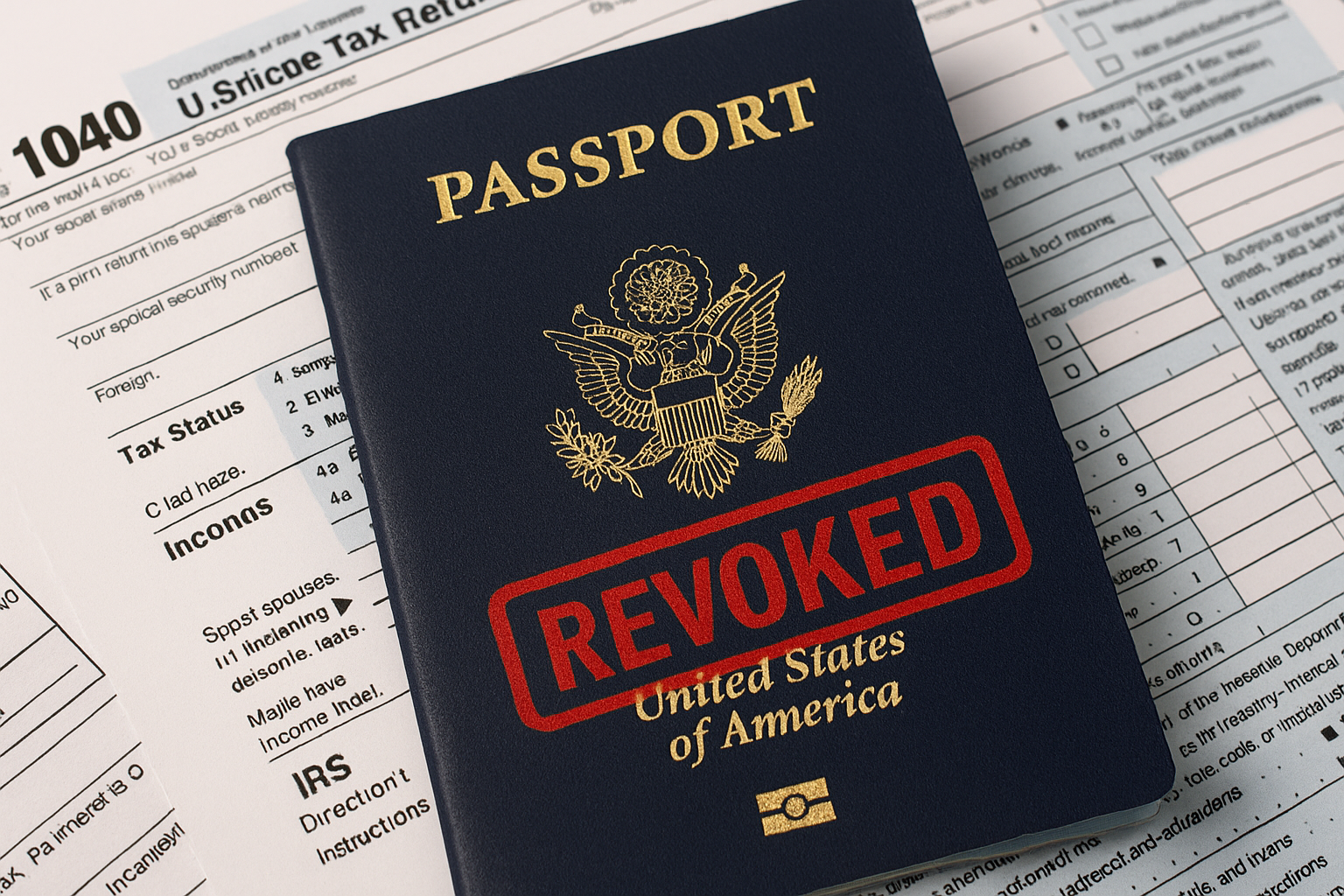
Passport revocation for tax debt can leave taxpayers grounded until they resolve IRS certifications.
5 Shocking Facts About Passport Revocation for Tax Debt
Most taxpayers know the IRS can garnish wages or place liens on property. But few realize the IRS can also trigger passport revocation for tax debt. This enforcement action, known as IRS passport certification, allows the agency to notify the U.S. State Department when a taxpayer owes seriously delinquent tax debt. The result? Your ability to renew or use your passport may be denied, delayed, or revoked.
1. Passport Revocation for Tax Debt Applies to “Seriously Delinquent Tax Debt”
The IRS defines seriously delinquent tax debt as unpaid federal tax debt over $62,000 (adjusted annually for inflation) that has been assessed and remains legally enforceable. Once a lien or levy has been issued, the IRS may certify the debt to the State Department.
Source: IRS – Revocation or Denial of Passport in Case of Certain Unpaid Taxes.
2. IRS Passport Certification Triggers State Department Action
When the IRS certifies a taxpayer’s debt, the information is forwarded to the U.S. State Department. At that point, the Department may deny your passport application, refuse renewal, or revoke your current passport. This is the critical enforcement mechanism behind passport revocation for tax debt.
3. IRS Notices Warn Taxpayers About Passport Revocation
The IRS does not revoke passports without notice. Taxpayers receive Notice CP508C, informing them that their debt has been certified as seriously delinquent. The notice also outlines appeal rights and potential steps to resolve the debt. Ignoring this notice may place your international travel at immediate risk.
4. Passport Revocation for Tax Debt Can Disrupt Travel and Side Hustles
Passport restrictions extend beyond vacation disruptions. Losing access to international travel can impact global business operations, remote work opportunities, or overseas side hustles. U.S. citizens living abroad face even greater complications when their passport is revoked due to tax debt certification.
If you’re earning abroad or working with international clients, staying compliant is critical. See our related guide: Understanding Side Hustle Taxes.
5. Resolving Tax Debt Can Prevent Passport Revocation
The best defense against passport revocation for tax debt is quick action. The IRS will reverse certification once you take specific steps, such as:
- Paying your balance in full
- Entering an installment agreement
- Securing an offer in compromise
- Obtaining innocent spouse relief
- Challenging the enforceability of the debt
Until certification is reversed, the State Department will not issue or renew your passport.
Key Takeaways on Passport Revocation for Tax Debt
- Passport revocation for tax debt applies to IRS-certified debt above $62,000.
- The IRS sends certifications to the State Department, which can deny or revoke passports.
- Notice CP508C serves as a warning—respond promptly to protect travel rights.
- Side hustlers and expats must be especially alert to IRS passport certification risks.
- Resolution options—payment, agreements, or appeals—can reverse certification.
For practical strategies on staying tax-compliant, see our guide: How to Report Side Hustle Income Without a 1099.
Further IRS details: IRS International Taxpayers – Passport Revocation.
Disclaimer: The information provided in this blog post is for informational purposes only and should not be construed as legal, tax, or accounting advice. Tax situations are often complex and highly specific to the individual or business. You should contact a qualified tax expert directly to discuss your particular circumstances. Nothing herein is intended to, nor does it, create an attorney-client or advisor-client relationship. For individual guidance, please contact us directly.


